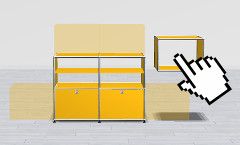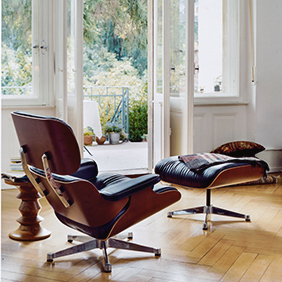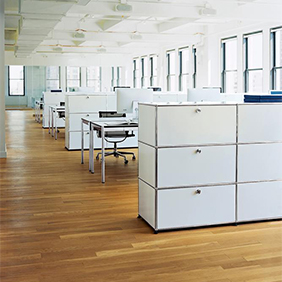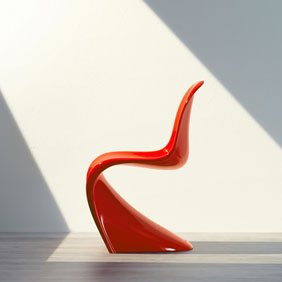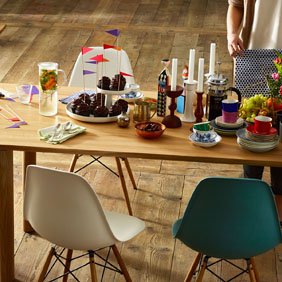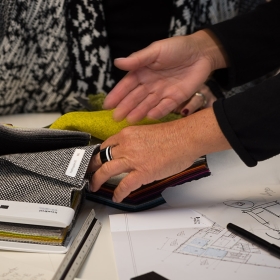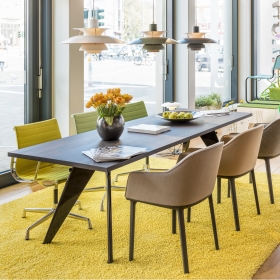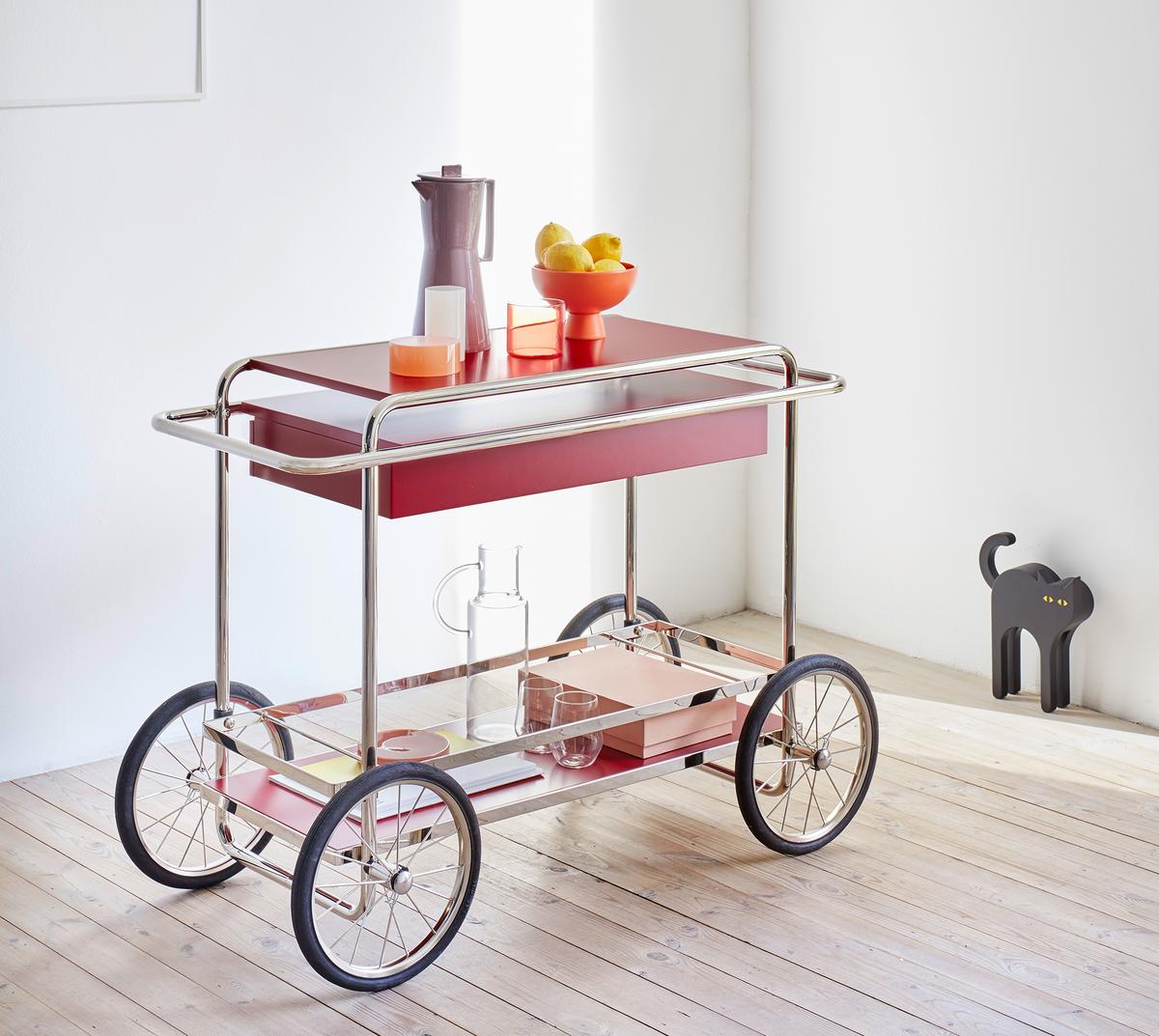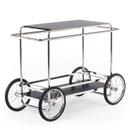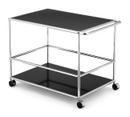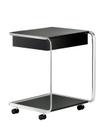M4RS, Black lacquered, Without bottle holder
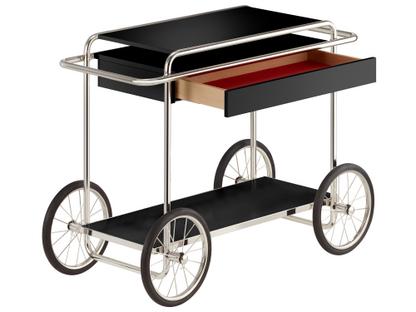
has been added to your wishlist.
Details
| Product type | Service trolley |
| Dimensions | Width: 104 cm Depth: 51 cm Height: 76 cm |
| Colours |   |
| Material | Frame: steel tubing, chrome plated Surfaces: wood, lacquered Please note: The first tubular steel chairs from the 1920s by Bauhaus artists such as Marcel Breuer featured warm reflective, nickel plated, surfaces. Hence the Tecta M4R and M4RS Serving Trolley are manufactured with nickel plated tubing. This nickel plating has a delicate, yellowish tone. |
| Variants | Optionally available with bottle holder On request, and at an additional cost, also available in walnut or oak veneer Version without drawer available as M4R |
| Function & properties | On 4 spokes wheels Drawer |
| Delivery includes | A red cloth is supplied as standard as drawer accessory. |
| Care | Nickel plated surfaces are prone to developing a surface patina over time. Tarnished or soiled areas can be cleaned with nickel paste and a white cloth, thereby effortlessly returning their original shine. |
| Warranty | 24 months |
German furniture manufacturer Tecta, who specializes in Bauhaus design, delivers a piece for real design lovers with the M4RS serving trolley. The elegant trolley is based on Bauhaus classics from the Tecta portfolio: the design combines the large spoked wheels of the Bauhaus lounger F41-E with the elegantly curved frame of the Bauhaus coffee table M40 and the practical drawer of the Oblique desk K2D from 2007. Or put another way, the M4RS was designed by Tecta in the spirit of the Bauhaus designer Marcel Breuer and offers a world of elegance and a touch of nostalgia in a functional serving trolley. Whether crockery, bottles, accessories or books - the Tecta console trolley has enough space on two levels for serving or to serve as a mobile bookshelf. Thanks to its curved steel handrail, the Tecta serving trolley can be easily moved from all sides, while an optional bottle holder provides additional security in the mobile minibar. The panels and drawer elements of the M4RS are available in numerous versions.
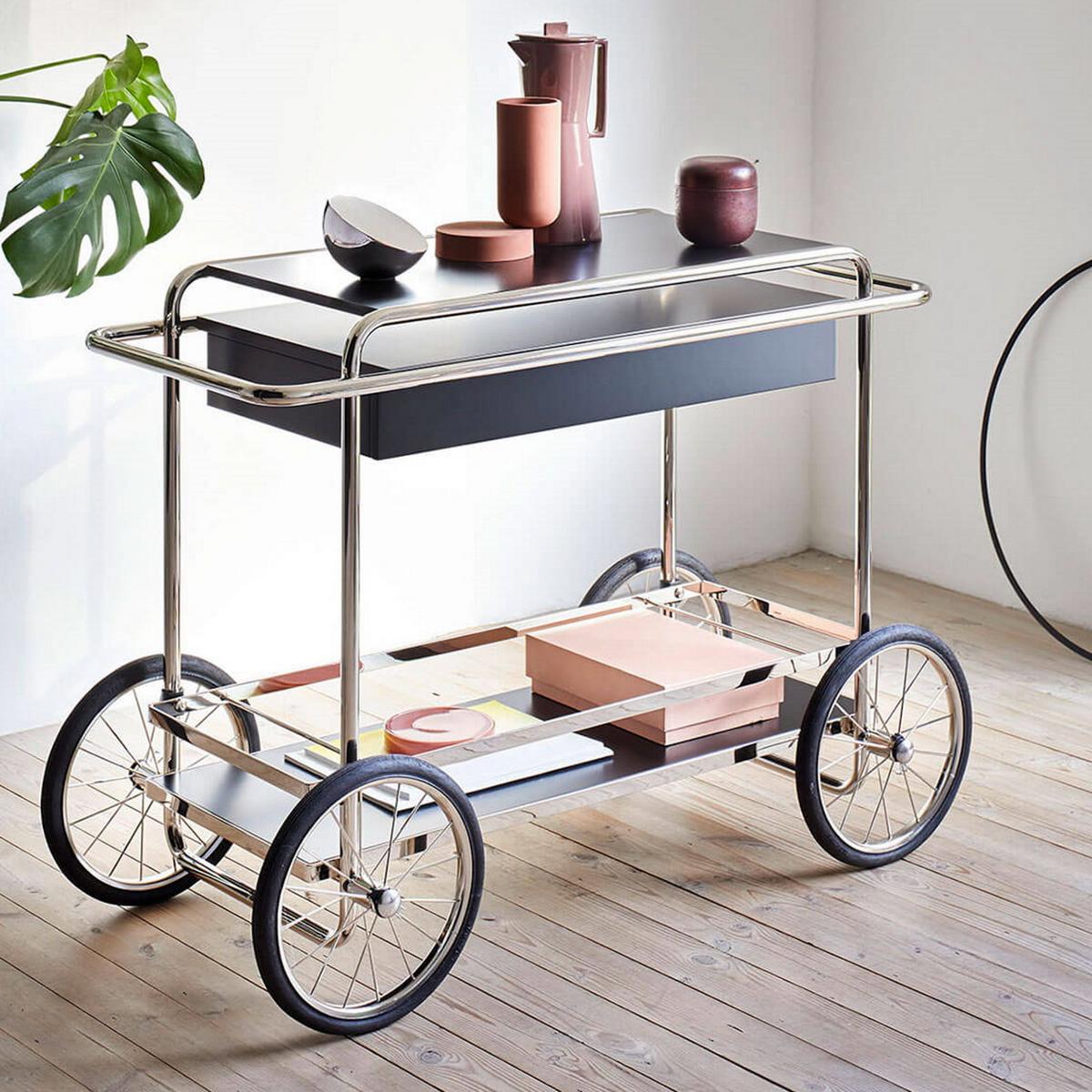
With the M4RS, contemporary and nostalgic are not a contradiction, but a team
Production
Tecta produces the majority of its furniture in Germany, primarily, at the company headquarters in Lauenförde, where the individual workshops for carpentry, upholstery, weaving and metal processing are housed. At the Tecta site, metal processing includes bending, stamping, welding and surface finishing. The tubular steel of the M4RS serving trolley and the other Tecta furniture is sourced in the Rhineland. The precision frames are then bent at the company headquarters and by a Tecta partner in Upper Franken and, if necessary, high-gloss chrome-plated in Bavaria in accordance with the strict German environmental protection guidelines. During production, Tecta uses the latest technology and traditional craftsmanship in equal measure. Only the best wood is used, which is quality checked before use.Designer
As a manufacturer of re-editions of licensed Bauhaus originals Tecta has a special responsibility and therefore sees its task as preserving the legacy of classic modernism. At the same time, however, it is also about further developing this legacy and improving it if necessary. In addition to originals by designers such as Marcel Breuer and Walter Gropius, Tecta therefore also develops and produces contemporary designs such as the M4RS and M4R console trolleys under its own name. The Bauhaus design philosophy is thus continued and kept alive by Tecta. An important aspect here is also individualization and custom-made products according to customer requirements, with which Tecta not only offers a unique service, but also clearly differentiates itself from uniform mass production.
Historical Context
The Bauhaus F41-E lounger and the Bauhaus M40 coffee table both place the console trolley M4RS in context of Bauhaus design, in a contemporary interpretation. The Tecta serving trolley M4RS can therefore be interpreted as a continuation of the Bauhaus design philosophy. After it was founded by Walter Gropius in Weimar in 1919, the Bauhaus broke with all the conventions of the time and set completely new concepts and ideas in motion. The Bauhäusler believed that by focusing on the functionality of design and the possibilities of production one could design timeless furniture and everyday objects. For this reason, in addition to theory, the focus was primarily on practice, and the individual workshops and their respective Meisters played an important role. The introduction of tubular steel from 1921 marked a turning point in the Bauhaus concept of design, because materials were now used that could be processed industrially and in series and thus gave the Bauhaus furniture a greater range.
Manufacturer
Based in Lauenförde on the Weser, the family business Tecta is now in its fourth generation under the management Christian Drescher. Tecta is derived from the Latin tectere and means design or execution: a name that reflects the company's specialisation in traditional handicraft techniques such as carpentry, upholstery or, and a particular focus at Tecta,wickerwork. Comparable to manufacturers like Knoll International or Cassina, Tecta produces furniture with a focus on modern designs of the 20th century by designers like Walter Gropius or Marcel Breuer. Thirty products from the permanent range bear the Bauhaus signet. This label guarantees that the pieces are faithfully produced under license as re-editions of the Bauhaus originals and are approved by the Bauhaus Archiv Berlin.
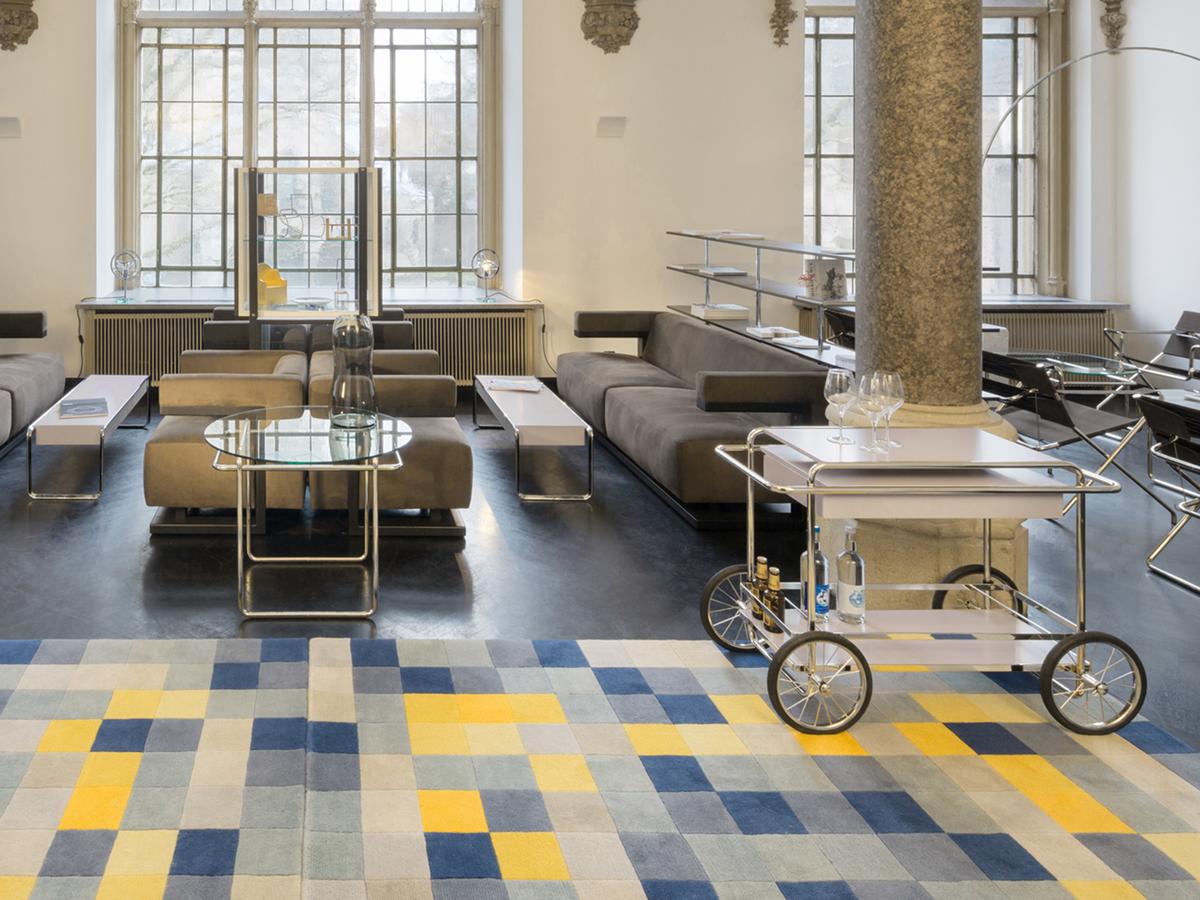
Bar trolley, side table or storage piece - the M4RS is versatility on wheels

